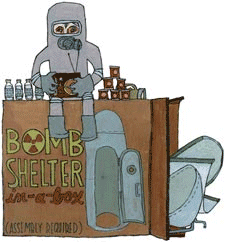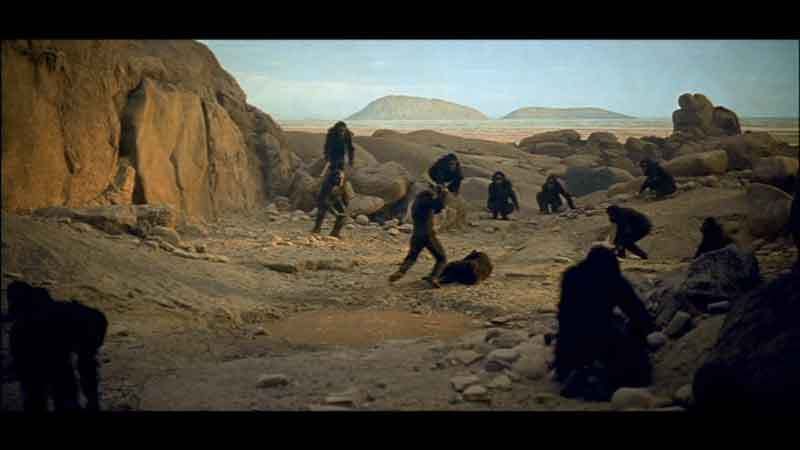Okay Paul,
Two questions there I think - how do you deal with those not pulling their weight?
What does one do with the elderly and young?
This is clearly something in a longer term situation - as you say - a breakdown of the normal societal safeguards.
To take the first point, I see the elderly as far from useless! With all respect Eric is no spring chicken (he's probably nearly my age). Would I want Eric in a "village" I was in. Sure I would! Would I want him in 10 years time? Yep 20? Yep When he's too infirm to do all he does? Yep. Why? Because of his knowledge and experience. Even if he can't knock up a quick pole lathe in 40 years, he will still know how to. He will have patience, skill and knowledge and the ability to pass on years of wisdom. In addition, many tasks (cooking, making and repairing tools and items, preserving food, butchering meat etc. can be done close to home and often seated.
Children? Walking pension schemes! This is why families had such importance in earlier civilisations - the elderly had knowledge, the middle aged had strength, the young were the future. Often the elderly would care for the very young leaving the fit adults to work long days. Its a societal model that the modern world has lost - "useful" does not have to equate to "pretty and youthful"...
Im glad to have read this post, Red, as a result of the expansions you have given, I can see some common ground between us, which I was beginning to fear wasnt going to be possible. Thanks, I now understand a little better where you and others are coming from..
In respect to the long-term/indefinite scenario:
My concern was that I was starting to read a fair amount of comment (not just yours) with an emphasis on usefulness (in terms of skills and ability to work hard), and it crossed my mind that anyone not in this position (for whatever reason) would not be welcome at the homestead, so to speak. I quite understand that the need would be for everyone to be playing an active role and making a contribution to the collective well being of a group(s) in the aftermath of a cataclysmic national/global event. That all makes perfect sense to me, and I have no contrary argument with that.
On the matter of families, as you mention above, this is the model of the extended family, its one that is proven to work, and works still, in many rural regions in what might be loosely described as developing nations and here too, not so long ago, as you say, and in remote/remote-ish indigenous societies. Its well understood that the aged have the experience, and that the young will be ones old age pension when one becomes too old to draft all day, every day. Although I dare say that we all have anecdotal evidence that the elderly are more than capable of pulling their weight. For instance, I have a cousin, in their eighties, who is right now putting 12+ hour days in, working on a film location in east Europe.
Incidentally, I think Eric would spend much of his time in the settlements Naughty Hut for being such a mischief maker - an attempt to lighten the mood a little

...To take the second model, any society must operate on a series of rules with sanctions and rewards. The truly lazy who "won't" rather than "can't" would have to have sanctions applied - from withdrawal of privilege and company, to denial of food and warmth garnered by others to banishment to, in extreme cases, more brutal sanctions. Imprisonment, serfdom and all the rest. Unpalatable but ...
On 'sanctions' see the URL about the Thing, below.
And by the way, my questions on the matter of usefulness were revolving around moral dilemmas of this type: what would one do with able bodied people who had no skills, of the type needed for immediate survival in this kind of extreme scenario? In the final analysis, how easy would it be for those of us who have the idea of ourselves as being highly moral individuals, abandoning those types of people to their own fate, and probable death? I don't mean those with a shirker mentallity, that's a given, as I've mentioned before.
I think that the orderly society that most of us would like to reconstruct after the cataclysm, would be some time in the making. Although, some groups would be more successful than others in terms of a timeline or schedule for this, not surprising, given that most people would have given little serious thought to this type of reconstruction, other than local/national government, and government may no longer exist in such a scenario, as Im sure most of us realise, or a least fear (And fear may be the primer mover in these kind of discussions. I mean, is this type of mass regression ever likely to actually take place other than in that old chestnut of the post thermo nuclear war scenario? Ill leave aside any consideration of recent attempts at nuclear weapons proliferation).
In the shorter term there would, I feel, be a good deal of physical violence involved in procuring resources to make shelter, water, food, and firewood for fuel etc, and in preventing those who would attempt to raid and pillage those resources one may already have access to (those lucky enough to have that life currently, rural landowners and the like), or have worked hard to acquire in the post apocalyptic period.
In the immediate catastrophic aftermath, my personal philosophy would be to talk softly and carry a big stick (premium hickory, heat hardened, of course

), and be one of the most cooperative individuals one could hope meet

And, improvise and adapt as best I could. I think this is all one could be reasonably be expected to do, and the simplest response, and thus the easiest to manage on a personal, individual level.
...There is a huge difference though between a group of people "thrown together" and a group of people who, in that situation, choose to be together and agree a set of rules to live by. This is a lot closer to the village mentality I think. If someone didn't fit in or chose to live in a different way, then they would be better off living elsewhere. For most of the history of Britain, many different groups with different rules and ideals lived in different areas...
I totally agree with the points you make here, Red, and think that the distintion you make between the two types of community are extremely valid. But I fear it might not be that clear-cut if the muck was to really fly, and in the immediate aftermath.
...As for potecting your precious resources...would anyone want to? No I doubt it. If that was the choice and someone was trying to take the food resources of a village that would see them through the winter? I imagine the community would react as any bronze or iron age community would have done...
I was reading this site last year:
http://www.arild-hauge.com/elife.htm
...In my mind, the hardest choices would be in times of famine - its probably easier to accept what would have to be done with "raiders" or even the truly insolent. Starving beggars though, if you only had enough for your own community. Thats one aspect of history I would hate to relive...
Yeah, I've never read about any upside to famine

And contrary to the, thus far, expressed expectations, would ones group become raiders by necessity? I always like to consider the flip side of things:
http://www.arild-hauge.com/eraids.htm
If such extreme events ever did take place, I think that the best solution, at least for the membership in the UK, would for us to agree to rendezvous at Merthyr Mawr, and party down
HARD!

Ill be easy to recognise, Ill be the one covered in oak leaves, from head to foot, and wearing the stag horn headdress

Cheers,
Paul.


 ... that Eric, mentioned on another thread
... that Eric, mentioned on another thread 






